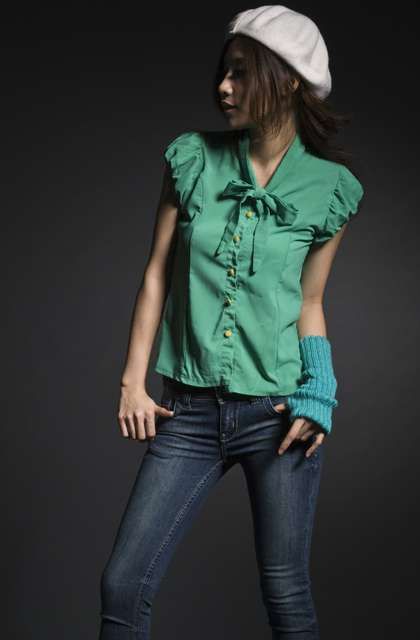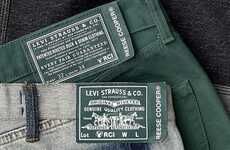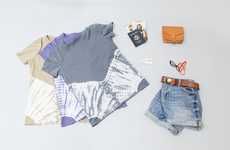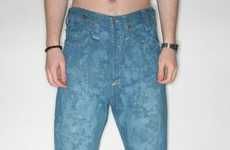
Reco Jeans Makes Use of Production Scraps from Factories Worldwide
Andrew Robertson — June 19, 2012 — Social Good
References: recojeans
Two boys playing in the factory that their parents worked in took the inspiration instilled within them at a young age to create the eco-friendly, designer label Reco Jeans.
Reco Jeans upcycles scraps of fabric into new textiles in order to make eco-conscious, quality assured denim jeans. The factory remains the same one that the co-founders played in as children but now outsources production scraps from many different factories throughout the world.
The majority of the jeans are made with recycled fiber and renewable cotton at a 60:40 ration. All of the dyes and trims are non-toxic while the tags and labels are made from recycled material. Available for both men and women, Reco Jeans continues to reinvent itself to ensure that they always create a dependable, fashion-savvy and eco-conscious product.
Contact Information
Reco Jeans website
Reco Jeans on Facebook
Reco Jeans on Twitter
Reco Jeans upcycles scraps of fabric into new textiles in order to make eco-conscious, quality assured denim jeans. The factory remains the same one that the co-founders played in as children but now outsources production scraps from many different factories throughout the world.
The majority of the jeans are made with recycled fiber and renewable cotton at a 60:40 ration. All of the dyes and trims are non-toxic while the tags and labels are made from recycled material. Available for both men and women, Reco Jeans continues to reinvent itself to ensure that they always create a dependable, fashion-savvy and eco-conscious product.
Contact Information
Reco Jeans website
Reco Jeans on Facebook
Reco Jeans on Twitter
Trend Themes
1. Eco-friendly Fashion - The trend of using sustainable and recycled materials to produce fashion products.
2. Upcycling - The trend of transforming waste materials into new and better products, reducing waste and environmental impacts.
3. Circular Economy - The trend of maximizing the value of resources by keeping them in use for as long as possible and minimizing waste.
Industry Implications
1. Fashion - The fashion industry can adopt sustainable and circular practices, using recycled and upcycled materials to produce eco-friendly and fashionable products.
2. Textile - The textile industry can innovate by creating new processes and technologies to recycle and upcycle textile waste, reducing the environmental impacts of textile production.
3. Waste Management - The waste management industry can develop new and more efficient methods to collect, sort, and process textile waste, enabling its transformation into new and valuable products.
3.6
Score
Popularity
Activity
Freshness























